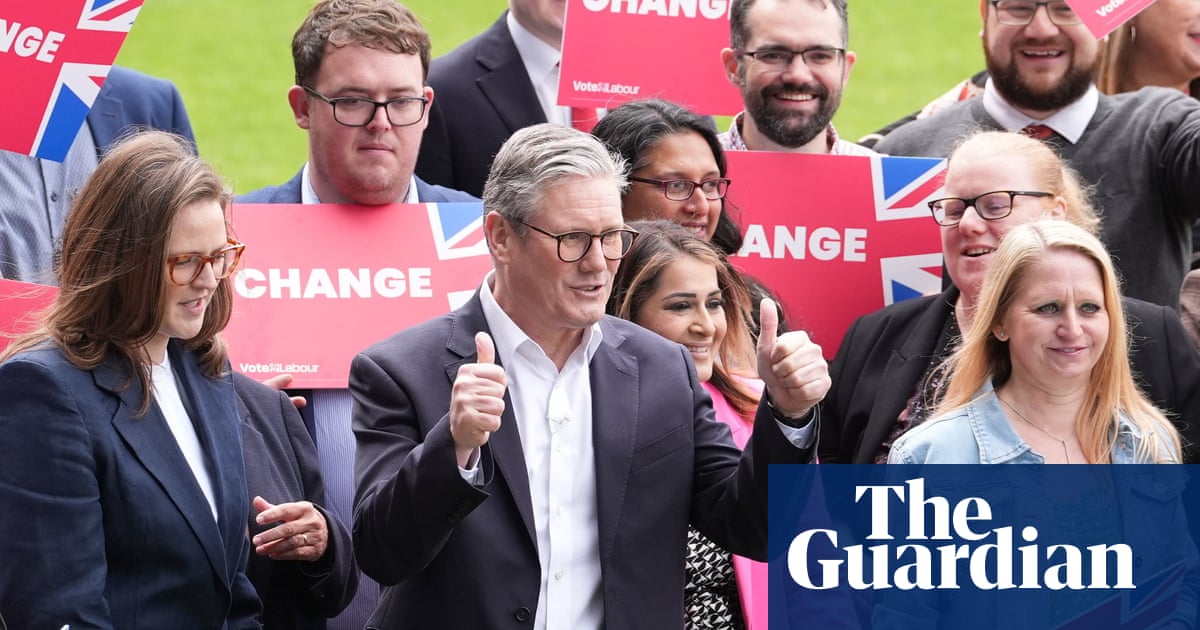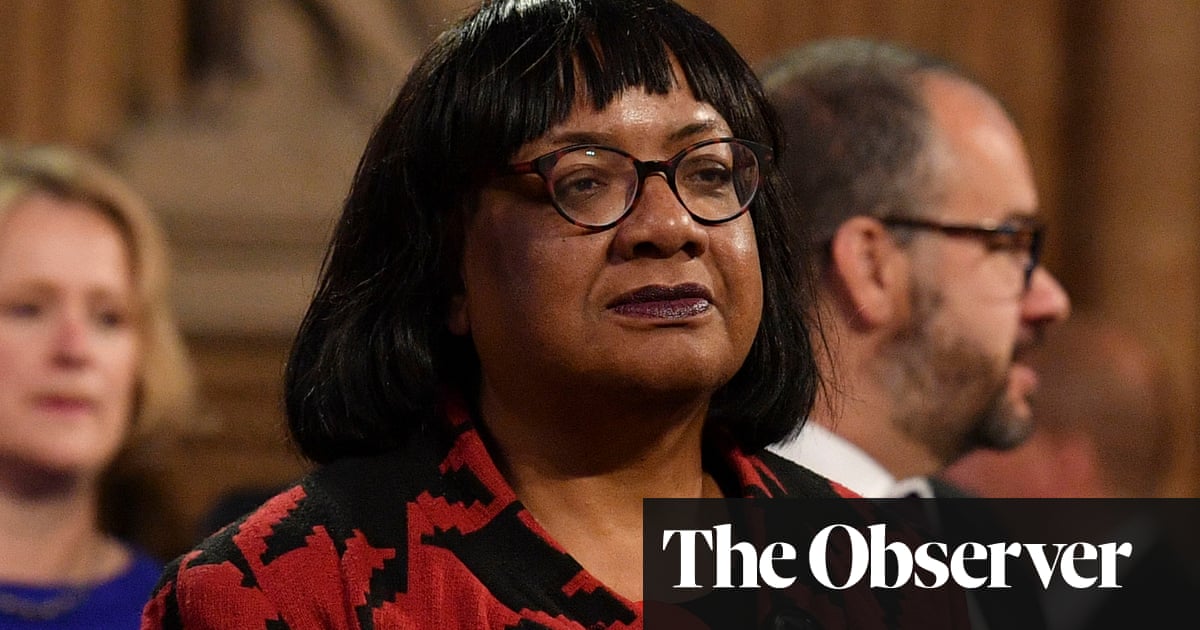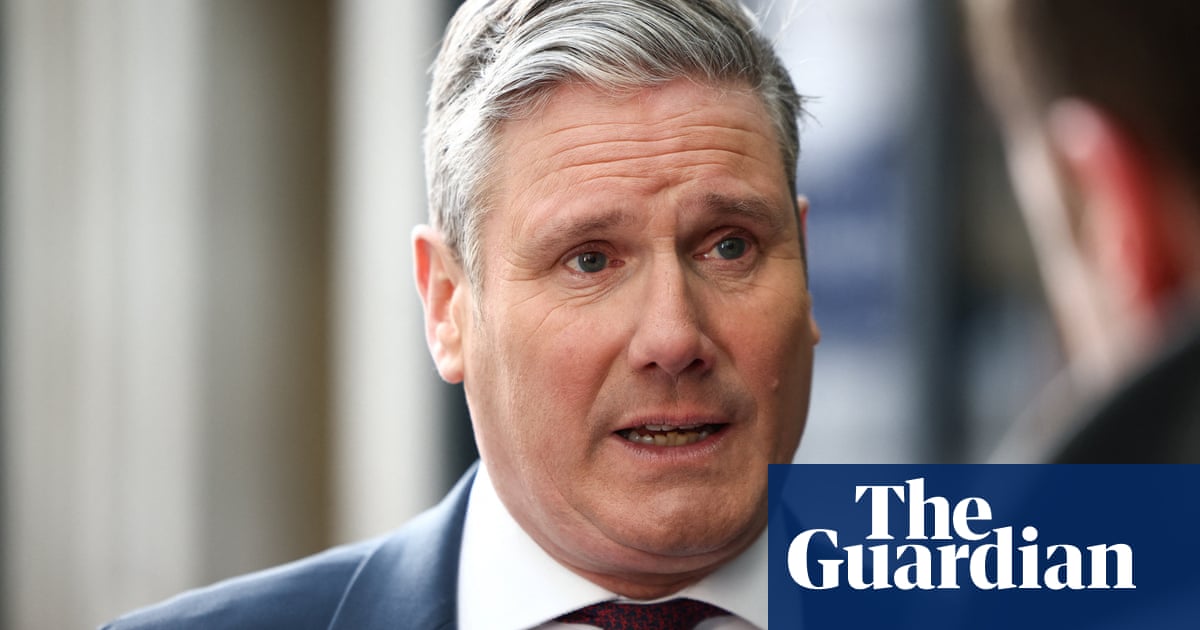
Keir Starmer has said he abandoned his pledge to abolish tuition fees in order to prioritise tackling NHS waiting lists.
The Labour leader said he still believed the system of university tuition had “got to change”, but insisted that the party could not fulfil both pledges given the state of the British economy.
“Looking at the costing for tuition fees or abolishing them, looking at the money we need to put into the NHS, I’ve taken the decision that we can’t do both. That’s a difficult decision, I’ll accept that,” he told BBC’s Radio 4 Today programme.
It comes after the Labour peer Peter Mandelson told the Guardian the next government would have to increase funding for universities as a matter of urgency, as vice-chancellors have warned that universities are facing a serious cash crisis. To turn the situation around, they said, increases of between £2,000 and £3,500 a year for each student would be needed to stabilise the sector.
Labour has said it would bring down graduate repayments, which would involve different repayment rates according to people’s salaries. Insiders said there was debate within Labour and the party would need to see what it inherited from the Conservatives before making a decision on tuition fees and increasing maintenance for poorer students.
Starmer was heavily criticised by the party’s left wing for conceding that he would not meet the tuition fee pledge. The Labour leader said: “Since then [2020], there’s been huge damage to the economy and as we’ve got towards the election we’ve had to make difficult choices.”
Pressed on his commitment to delivering on pledges, Starmer said: “Some people will say you’re going back on one [pledge] but not the other, but we can’t have both, and I’ve decided that we have got to prioritise getting those waiting lists down in the NHS, because we can’t get our economy going … without a healthy nation with us.”
Lord Mandelson, an architect of New Labour, which introduced the tuition fee system in 1998, said: “Universities are under huge financial pressure, both because their income is falling a long way short of their costs and because some in the government actually want fewer universities and [less] access to them.
“This cannot be turned round overnight by a new incoming government, but there will need to be some emergency uptick in resources to save both university teaching and vital research.”
David Willetts, who was the universities minister in 2012 when the cap on fees was increased to £9,000, said: “I’m sure all the political parties will be tempted to try to avoid it, but the costs of doing nothing are rising all the time. They are borne by students, who have worse-quality higher education experiences, and there will be an increasing risk of some universities going bust.”
Starmer spent much of Friday campaigning in Glasgow East, where he launched the party’s Scotland election campaign with the Scottish Labour leader, Anas Sarwar.
Labour won only one seat in Scotland at the last general election, but the party is currently enjoying a rise in support. Starmer told reporters that while the “numbers really matter”, it was also important to him to be a leader for all parts of the UK.
He said: “This is also personal. If I am privileged enough to come in and serve as the UK prime minister, I want to be the UK prime minister for the whole of the United Kingdom, and that includes Scotland.
“Over and above the numbers, having strong Labour representation from Scotland sitting on the government benches matters to me in terms of the way I want to govern, which is for Scotland and with Scotland.”
Starmer and Sarwar said the SNP lacked ambition with its slogan about “sending a message” to Westminster by voting for them. Starmer said: “The SNP have lost any sense of ambition if all they want to do is sit on the opposition benches and protest.”
Earlier in the day, the Labour leader rejected claims that Labour would have to raise taxes, make spending cuts or change its fiscal rules if it won the general election.
He said he would scrap the two-child benefit cap “in an ideal world”, but again insisted his party would not have the resources to do that “at the moment”.












